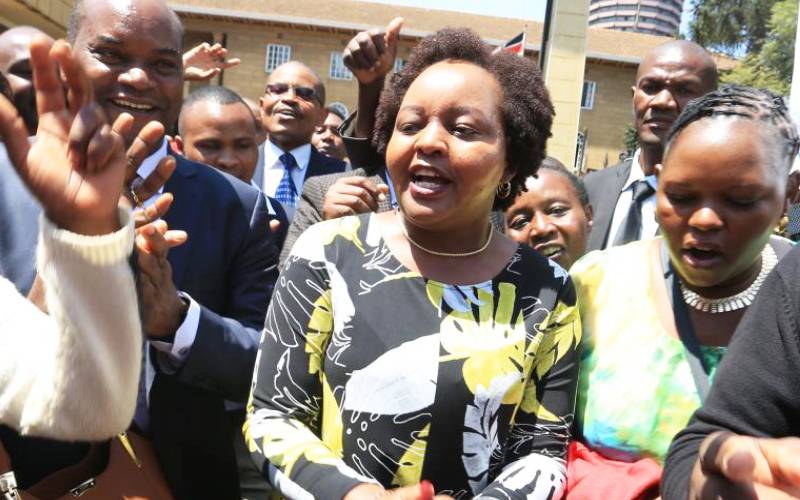×
The Standard e-Paper
Stay Informed, Even Offline

Kirinyaga Governor Anne Waiguru celebrates with her supporters after the Supreme Court threw out a petition challenging her election. [George Njunge, Standard]
The Supreme Court yesterday threw out Narc Kenya party leader Martha Karua’s appeal against a lower court’s verdict that upheld Kirinyaga Governor Anne Waiguru’s victory.